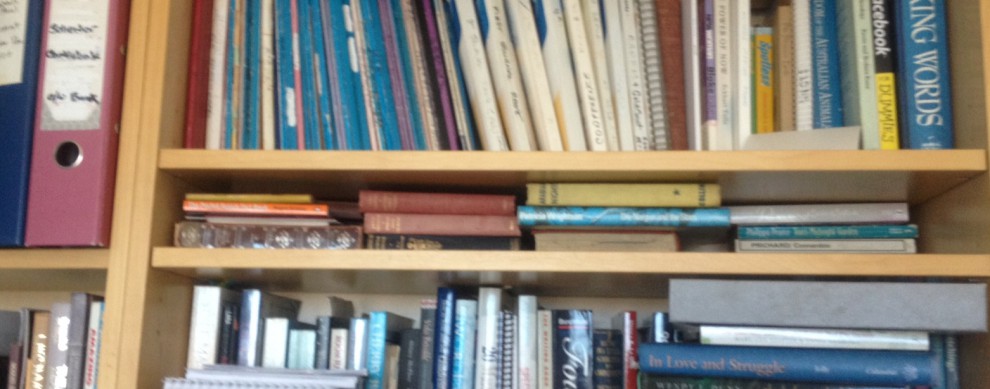Some books go straight to your heart and inspire you to work harder, try harder.
Lisa Hill’s Reviews from Indigenous Literature Week at wordpress ANZ Litlovers 2016 | ANZ LitLovers LitBlog made me think about the book that gave me the confidence to embrace creative writing. It was Sally Morgan’s My Place; the story of being part of an Aboriginal family who, due to the shame attached to being aboriginal in Australia, ensured that Sally grew up believing the family came from India.
My ancestry was German, but until I was in my twenties I believed our family came from Belgium. When my father died I couldn’t sleep. Every night was spent sitting at my computer trying to recapture in words so many of the stories he had told me (after he turned eighty) about his life as the first child of German immigrants born in Australia. Stories I felt could be lost forever if I didn’t commit them to paper..now. But the fear was always there. Would I be a good enough writer? Would the family understand? Would anyone be offended? How truthful could I be?
It was then that I read My Place and it struck a chord.
If Sally Morgan could write in a down to earth manner the story of her aboriginal family life and denial of ancestry, well, so could I. With renewed confidence, and after many years, Pickle to Pie was finally born.
Synopsis of Sally Morgan’s My Place. This is a story of a young Aboriginal girl growing up to false heritage and not knowing where she is from. Recounts of several of Morgan’s family members are told. The story setting revolves around Morgan’s own hometown, Perth, Western Australia, and also Corunna Downs. Morgan has four siblings, two brothers and two sisters. She faces many challenges, such as fitting in at school, getting good marks for acceptance in University, and living life without her father.
Looking at the views and experiences of three generations of indigenous Australians, this autobiography unearths political and societal issues contained within Australia’s indigenous culture. Sally Morgan traveled to her grandmother’s birthplace, starting a search for information about her family. She uncovers that she is not white but aborigine–information that was kept a secret because of the stigma of society. This moving account is a classic of Australian literature that finally frees the tongues of the author’s mother and grandmother, allowing them to tell their own stories.
About The Author
Sally Morgan is an experienced author and photographer. She has written more than 250 titles for both children and adults. Her main interest is in the natural world and environmental issues, but she writes on all science and geography topics. A former teacher and chief examiner for A level biology, she is now a full time writer, When not writing, she helps out on her organic farm in Somerset.
Reviews from Indigenous Literature Week at ANZ Litlovers 2016 | ANZ LitLovers LitBlog




Pingback: Reviews from Indigenous Literature Week at ANZ Litlovers 2016 | ANZ LitLovers LitBlog
Hi Glenice, thanks for the mention, and for sharing your story about making a connection like this. I’ve added this review to the collection of reviews for #IndigLitWeek on my blog:)
LikeLike
Good choice of book to review Glenice. Isn’t it amazing how as writers and readers we get inspired and inspire others – I know your book and your writing journey has inspired many in the Mordialloc Writers’ Group.
LikeLike
At last I’m going to read ‘My Place’. Thanks, Glenice.
LikeLike
It’s such a great book, Coral. It was the first time I had encountered a book that wasn’t literary and the characters spoke, and could be funny like the clients in my hairdressing salon.
LikeLike
Hard to realize that even as recent as the ’70s the shame of being Aboriginal was ‘there’. Thanks for this book and author post. My Place sounds like a great read! -Jennie-
LikeLike
So true, jennie. It’s great these days to hear ‘welcome to country’ acknowledgements before so many conferences and important occasions. It’s been a long time coming but attitudes are changing. I love the open fire tended by indigenous people during our coldest winter month in Melbourne. Every June at Federation Square people of all nationalities gather around it for warmth & companionship.
LikeLike
Pingback: 2018 Indigenous Literature Week – a Reading List of Indigenous Women Writers | ANZ LitLovers LitBlog
Pingback: First Nations Reading Week – a Reading List of First Nations Women Writers | ANZ LitLovers LitBlog